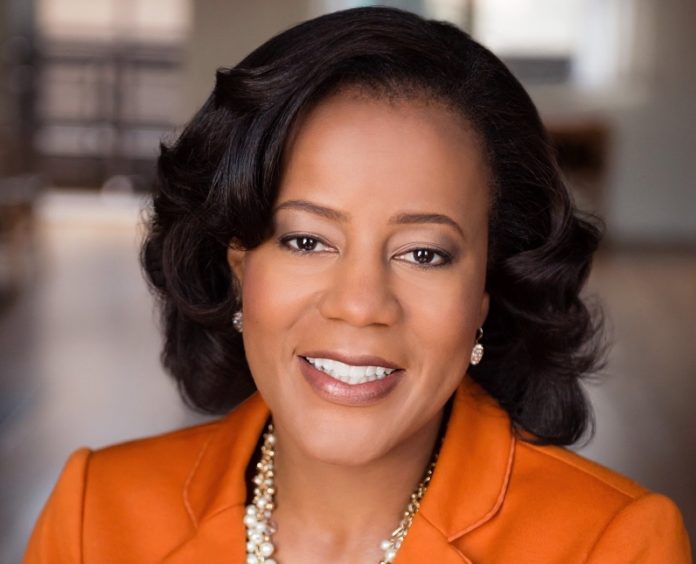Small business is at the heart of my family’s history. Both my maternal and paternal grandfathers were small business owners. My mother’s father owned Charlie Lawrence’s Coal and Ice in the Rush City neighborhood of East St. Louis, Illinois in the mid to late 1940s. His work supplying heavy chunks of ice for iceboxes and coal for furnaces was one of the occupations he leveraged to put twelve kids through college, my mother among them. My father’s father owned Statum Cleaners in Oklahoma City, Oklahoma. It was a local place where Black residents could get their clothes dry cleaned and pressed, so they always looked sharp. Small businesses were the backbone of my family, just like they are for so many families across America today.
All things being equal, the kind of success made possible by small businesses might be evenly shared across all sectors and communities in America. But we know – all things are not equal. They’re not even equitable.
And so, this Black History Month, I’m proud to lead Facebook’s efforts to help Black and Latinx & Hispanic business owners and communities realize their own, unique visions of successful small businesses.
As part of our broader efforts to gauge how the pandemic was affecting small businesses across the world, Facebook last year sponsored a six-part study called the State of Small Business Report, which had some heartbreaking findings. While economic outlooks improved as COVID-19 abated, its economic impact was felt most strongly by minority communities, which saw lower sales, higher closure rates, and reduced employment, compared to small businesses in non-minority communities.
The report shines a light on why the work of supporting small businesses has never been more important. This is why I’m proud to champion Elevate – a digital platform by Facebook in support of Black and Latinx & Hispanic entrepreneurs and creators. Offering workshops, training, mentorship circles and tailored advertising account management support, we’re committed to helping grow their business and amplify their voice in the community.
We like to think of our Elevate community as family.
For Black History Month this year, Elevate is offering a slate of inspirational and educational programming, organized under #GenBlack. Our goal is to inspire people through the power of examples and stories.
I see these stories all the time in Facebook groups, where people in need of help can connect with people ready to help. There are groups with a national focus like Young Black Entrepreneurs and Profit with Black Women, and others with a more local focus, like the Charlotte Black Business Group.
In one case, in the wake of the national conversation spurred by the deaths of George Floyd, Breonna Taylor and others, Autumn Perry-Robinson created the group Columbus Black Owned Businesses to raise awareness and support Black businesses in her area. More than 79,000 people have joined the group since last May, each finding ways to stay afloat despite COVID-19. Similarly in Sacramento, Chris Lodgson created Sac Black Biz Community when he saw there was no centralized place for Black-owned businesses in his area to find and offer support. Now with 7,000 members, including almost 1,000 Black business owners, they are helping each other find and access important information like State financial assistance and marketing opportunities, and assistance transitioning to online and social commerce.
These are just a few stories out of thousands – meant to illustrate that, in a world where connections can mean the difference between success and failure, increasing the density of connection between business owners can make a critical difference in the financial well being of entire communities.
In the Elevate Facebook group, members are encouraged to build relationships and support each other during their journeys. It’s also a way for our teams to hear directly from the community — feedback that continues to help us build better programs.
Although it’s commonly overlooked as a ‘soft skill’, perhaps the most important thing Facebook can do to help small businesses is to bring people together, to share stories and hardships, compare notes, and offer mentorship. Success in business is never the result of one individual’s particular insight. It’s the result of a group of people working together to solve common problems. As a community, we have so much we can teach each other. And if we can tear down the structures that isolate people, and their knowledge from each other, we can go a long way towards building stronger community connections for people around the world.
Looking ahead, and to keep all of this going, this past June, Facebook committed an additional $200 million to Black-owned businesses, creators and nonprofits. We’ve awarded grants to over 10,000 Black-owned businesses in the US and launched more resources and programming to spread knowledge and skills as far as we can.
Through our Facebook Blueprint program, we’re also awarding 100,000 scholarships to Black students working toward digital skills certifications. These scholarships will allow them to take the Facebook Digital Marketing Associate Exam at no cost.
I’m optimistic that our work with Elevate, and all our other programs, will go a long way towards building a better future for communities of color across America and the world.
As known all too well by those who’ve experienced financial ups and downs before, little insights can make a big difference. I think back often about my grandfathers, working to keep their communities in comfort and looking sharp, and how their success was so intertwined with the success of their communities. And I hope that more people make use of the tools we’ve built to grow their business, and build a solid future for themselves and their communities, for both this generation and the next.
Judy Toland is the VP & Head of Scaled Solutions, Global Business Marketing at Facebook.







